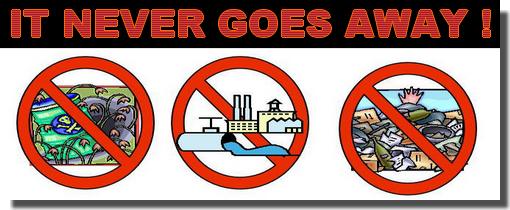Feeling Guilty About how Little you Recycle?

 Add article to favourites
Add article to favourites Next week is the 15th annual Zero Waste Week campaign, and businesses, organisations and householders are taking waste audits, looking at habits and seeing where they can improve.
Next week is the 15th annual Zero Waste Week campaign, and businesses, organisations and householders are taking waste audits, looking at habits and seeing where they can improve.
Perhaps you’re one of them and are having a pang of guilt. I know that in the lead up to the week I’m often shocked at how many bad habits have crept in place.
And that’s ok – we’re all human.
Have you ever thrown away a handful of rubbish into your general waste bin despite quietly knowing that you probably could have recycled some of those materials?
Well, you’re not alone.
In a recent study dubbed ‘The UK’s Recycling Guilty Secrets’, it was revealed that in a sample of 2000 UK residents, 71% knowingly chuck their recyclable materials in the general waste bin.
The study also found that 54% consciously put non-recyclable waste into the recycling bin.
This is not good news. But it’s understandable. We’re busy people, with demands on our time and increasing commitments. And many people don’t have their recycling set up properly at home, meaning they often struggle to make it a habit.
And it’s confusing too. I’ve spoken before about how difficult it is to get the right advice, because there is no information that covers the whole of the UK. The guidelines in my county, might be completely different to yours. If you’re running a business, there is often the issue with contaminated waste. For example in restaurants where glass gets mixed up with food waste.
Most of us are aware that ‘wishcycling’ – as it is known – can be bad for the environment, but we’re not here to judge, we’ve all thrown the wrong stuff in our bins at some point. (you can read more about what waste goes in which commercial recycling bin here).
When I speak with people, I find there are several barriers to them recycling correctly.
One of the key reasons people knowingly throw their recycling in the wrong bin is because they feel like no one else in their house or neighbourhood is recycling properly. For example, parents may end up mixing their waste because they view their efforts as meaningless since their kids are chucking all sorts in the bins regardless. Or couples don’t bother because one is invested in sustainability, but the other one isn’t.
This was certainly true for me. When I told Mr Green I wanted us to recycle more, I was met with complete disinterest. His view that there was no point as we couldn’t make a difference. [But there is always room for hope. As you can read here.]
So it’s important to get everyone on board and make recycling a team effort. If you all work together and hold each other responsible then you’ll find that you’ll recycle far more consistently. And it can be fun too, if you bring in a competitive element. Which is what Jen and Grant did with their Clean Bin Project.
I’ve discovered over the years, that the most important step for success is getting really clear on your why. WHY do you want to recycle more? This will be very personal to you. For me it’s all about my children’s future – they deserve to inherit a healthy and beautiful planet. For my husband he wants to protect wildlife. A friend of mine is a devout Christian and sees it as her duty to be a good custodian of the earth. You might want to save money or just rest easy at night by feeling you’re doing the right thing.
Once you have your why in place, it’s so much easier to find the motivation to keep going.
So figure out your why and just get stuck in. Ditch the guilt, focus on what you can do and remember that the collective impact of all our actions can make a significant difference.



















